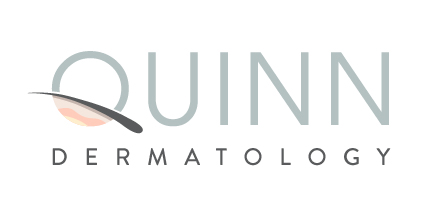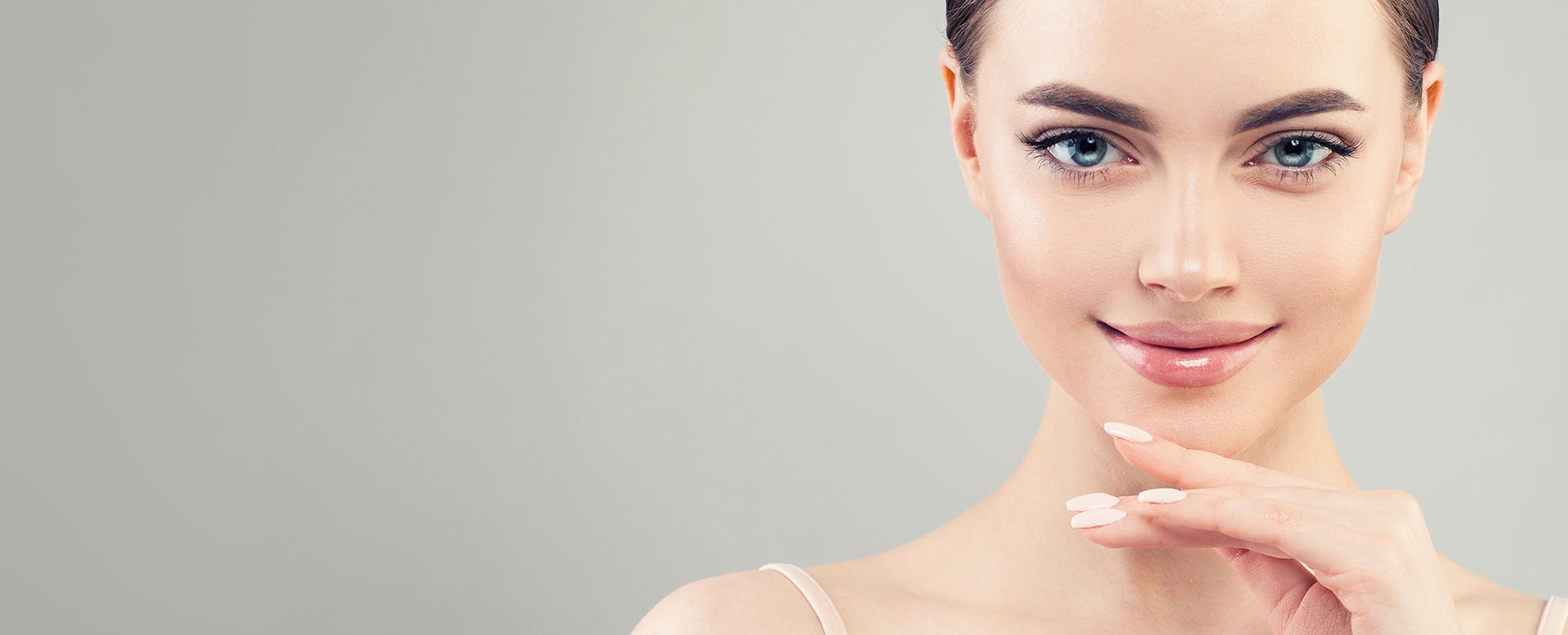11 Feb Effective Acne Treatment Options for Every Age
Acne is a common skin condition that affects people of all ages, from hormonal breakouts in adolescence to adult-onset acne and even skin concerns in your 50s and beyond, understanding what causes acne at different ages can help you find the best treatment. At Quinn Dermatology, we believe everyone deserves clear, healthy skin, no matter their age, which is why we offer personalized, effective acne treatment solutions to patients out of both our Houston and Beaumont clinics.
Teenage Acne (Ages 12-19):
Hormonal Surges & Oil Overload
For many teens, acne is a rite of passage. Hormonal changes during puberty trigger increased oil production, leading to clogged pores, blackheads, whiteheads, and inflamed pimples.
Common Causes
- Increased androgen (hormone) levels
- Excess oil (sebum) production
- Clogged pores from sweat, dirt, and makeup
- Bacteria buildup
How to Treat Teen Acne
- Wash your face twice daily with a gentle, oil-free cleanser containing salicylic acid or benzoyl peroxide.
- Avoid over-washing—too much cleansing can dry out your skin and cause more oil production.
- Use non-comedogenic skincare and makeup products to prevent clogged pores.
- Apply spot treatments with benzoyl peroxide to reduce active breakouts.
- See a dermatologist if breakouts become severe—prescription treatments like retinoids or antibiotics may be needed.
Quinn Dermatology Pro Tip: If you have stubborn acne that won’t go away with over-the-counter acne treatment products, we offer customized treatment plans to clear up your skin safely and effectively.
Young Adult Acne (Ages 20-30):
Stress, Lifestyle, and Hormones
Just when you thought you left breakouts behind in high school, acne in your 20s can still pop up—especially due to stress, diet, and hormonal fluctuations.
Common Causes
- Stress (triggers oil production)
- Hormonal fluctuations (especially for women around periods)
- Diet (high sugar and dairy can contribute)
- Incorrect skincare products (heavy moisturizers and makeup can clog pores)
How to Treat Acne in Your 20s
- Use a gentle cleanser with salicylic acid to keep pores clear.
- Moisturize with an oil-free, non-comedogenic product to balance hydration.
- Avoid touching your face—your phone, hands, and pillowcases carry bacteria that can trigger breakouts.
- Use retinol-based treatments to prevent acne while also helping with early signs of aging.
- Manage stress through exercise, meditation, and proper sleep.
Quinn Dermatology Pro Tip: If you have deep, painful breakouts, we offer in-office acne treatments like chemical peels and laser therapy to reduce acne scars and inflammation.
Adult Acne (Ages 30-50):
Hormonal Shifts & Skin Sensitivity
Many adults experience breakouts well into their 30s, 40s, and even 50s. Adult acne is often linked to hormonal imbalances, stress, and inflammation, but it can also be worsened by skincare habits and environmental factors.
Common Causes
- Hormonal fluctuations (especially during pregnancy, menopause, or birth control changes)
- Stress (cortisol spikes can increase oil production)
- Anti-aging products (some thick creams can clog pores)
- Poor diet and gut health (inflammation from sugar, dairy, and processed foods)
How to Treat Adult Acne
- Stick to a simple, gentle skincare routine—harsh products can strip your skin and cause more oil production.
- Use glycolic acid or retinol-based treatments to fight acne while also addressing fine lines.
- Keep skin hydrated with lightweight, non-comedogenic moisturizers.
- Consider hormonal treatments like birth control or spironolactone for persistent breakouts.
- Schedule professional treatments like chemical peels, laser therapy, or prescription medications if acne is severe.
Quinn Dermatology Pro Tip: Struggling with adult acne? We offer personalized acne consultations to create a custom skincare plan that clears your skin without over-drying or irritating it.
Mature Skin & Acne (Ages 50+):
Unexpected Breakouts
Even after menopause, some people still experience acne, often due to hormonal changes, medications, or skincare products that irritate the skin.
Common Causes
- Decreasing estrogen levels (can cause oil imbalances)
- Skin becoming more sensitive over time
- Reactions to anti-aging creams (some ingredients can clog pores)
- Medications (some prescriptions can trigger acne-like reactions)
How to Treat Acne in Your 50s and Beyond
- Use a gentle, hydrating cleanser to maintain skin balance.
- Choose fragrance-free, non-comedogenic skincare products to avoid irritation.
- Incorporate ingredients like niacinamide and hyaluronic acid to hydrate and soothe the skin.
- Consider prescription retinoids for both anti-aging and acne prevention.
- Get professional treatments like microneedling or chemical peels to help with both breakouts and fine lines.
Quinn Dermatology Pro Tip: We provide custom anti-aging and acne treatments designed for mature skin, ensuring you maintain clear, healthy skin at any age.
Acne can happen at any stage of life, but the good news is that effective treatments are available for every age group. Whether it’s the first signs of pre-teen breakouts or the occasional unexpected breakouts during your later years, by understanding your skin’s needs and using age-appropriate treatments, you can keep breakouts under control while maintaining a healthy, glowing complexion no matter your age. If you have concerns about your skin, our dermatology team is ready to provide expert guidance and customized acne treatments. Schedule a consultation today!


